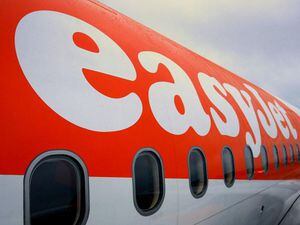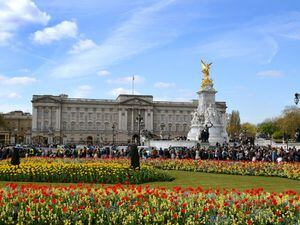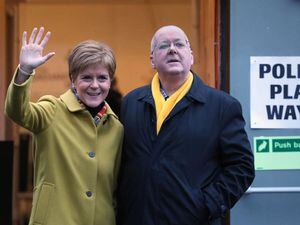EasyJet suffers 17% profits fall but cheers ‘encouraging’ recent trading
Outgoing boss Carolyn McCall said it had been a “difficult” year for the industry as she posted a 17.3% drop in annual profits to £408 million.

Budget airline easyJet has seen annual profits nosedive by 17% after taking a £101 million hit from the weak pound, but confirmed a boost from the demise of rivals and recent woes at Ryanair.
In her last set of results before taking on the top job at ITV, chief executive Carolyn McCall said it had been a “difficult” year for the industry as she posted headline pre-tax profits of £408 million, down from £494 million the previous year.
The pound’s plunge since the Brexit vote took its toll on the carrier’s bottom line, while a price war also left revenues per seat falling 7.8% with currency changes stripped out.

The group also said trading so far in its new financial year has been “encouraging” thanks to last month’s collapse of Luton-based carrier Monarch, as well as the demise of Air Berlin and Alitalia’s administration.
Forward bookings are higher than a year earlier, at 88% for the first quarter and 26% up for the second quarter, while it now expects revenue per seat to grow by “low to mid-single digits” in the first half.
However, the group stressed the outlook for the second half of the year was “very limited”.
It also cautioned over costs of its deal to buy up to 25 aircraft from now-defunct Air Berlin as well as recruit up to 1,000 staff from the group, with the operation in Berlin Tegel expected to make a headline loss of £60 million, plus around another £100 million in other one-off costs.
Ms McCall said: “EasyJet delivered a robust performance during a difficult year for the aviation industry.
“Our planned approach of achieving number one or two positions at Europe’s leading airports, friendly and efficient customer service and a continuous focus on sustainable cost control has put easyJet at a strategic advantage during a period when there have been bankruptcies and some airlines have struggled operationally.”
Shares in easyJet surged by 6% as investors cheered the brighter outlook.
The group had already said last month that full-year profits were set to come in at the top end of its forecasts, having carried 24.1 million passengers in its final quarter.
It flew a record 80 million passengers over the full year to September 30, with its highest ever annual load factor of 92.6% – a key measure of how well airlines fill their planes.
The group also said that it has protected itself against rising fuel prices, which means it will see a benefit of between £100 million and £125 million for the year to next September.
But the group may face pressure on its home turf given the saga surrounding Monarch.
It will be an immediate challenge for incoming boss Johan Lundgren, a travel sector veteran, who joins on December 1 from tour operator TUI, with rival airlines circling Monarch’s coveted runway slots.
Administrators for Monarch are taking their fight to the Court of Appeal after the High Court decided to strip the carrier of its lucrative take-off and landing slots at Gatwick and Luton airports.
But easyJet said “whatever happens to these slots will be beneficial for us”, as it hopes to pick up some slots if they are sold on the open market, while it does not believe rivals would want to compete directly with it.
Ms McCall said she was leaving at the “best time” for the group.
“You have to leave when it’s on the up and I think it’s very much on the up,” she said.
Analysts at Liberum said that while the airline’s outlook was “encouraging”, it was also “mixed”.





